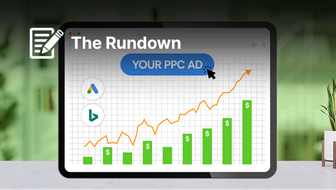Today’s Ask an SEO question comes from Emil in Albuquerque. Emil asks:
“I have some mainly older articles on my site that are starting to be re-indexed by Google. There are about 42,000. They extend to 2004. They are not evergreen, hence are not really relevant to current time. So I am trying to figure out how to use them.
I have done little internal backlinking and have started to do this for about 200 of these articles to about 5 of my top pages, when they are relevant and have specific anchor text.
I have of the top of my head about 20 to 40 important pages that rank well on Google. I am also concerned about diluting my overall site authority with these “old” articles.
Any advice?”
Great question, Emil. There are a few concepts that routinely come up when SEO professionals talk about older articles. Most frequently they mention crawl budget, duplicate content, and topical dilution.
We’ll touch on all of those below but for the vast majority of cases, none of those should be the main driver of your decision on how to handle old articles.
That decision will likely come down to your users and your site’s goals.
The TL;DR Version
The answer to how to treat old articles really depends on what type of old articles they are and what type of value they add to your users.
A news site, for example, may want to keep all these old articles live because there is value in historical news searches. While they may want to keep them live, they may not link to them very much or prioritize them.
Most importantly, they keep the date published so that users know they’re potentially outdated articles.
A non-news site like a company blog, SEO-themed site, or topical site may decide that there isn’t much value in their older articles for users.
If this is the case, the best alternative is to either update the article to something more relevant that will interest users and rank or to simply remove it.
Search Engine Journal updates many of our older SEO posts every year so that they always have the freshest information, for example.
If you choose to remove your older article, you can either 404 it or 301 redirect it to a newer version of the article. Sometimes, you might even 301 it to the relevant category if it exists.
Again, this decision should be made based on users and not so much search engines.
Breaking Down the SEO Concerns
OK, now that the quick Reader’s Digest answer is out of the way, let’s move on to the various SEO issues underlying this question in a bit more detail.
Crawl Budget
In my opinion, crawl budget is something that most sites don’t really need to worry about.
When we’re talking about thousands or tens of thousands of URLs, that’s not really much of an issue for search engines to crawl.
Of course, if you have tons of infinite redirects, crazy javascript links, and faceted navigation that turns those thousand into a million, there’s an issue. But that’s outside of the scope of this post.
Google and Bing have gotten pretty good at knowing what pages to crawl more often. It’s a lot more complicated than this, but a good simple rule is that they crawl according to PageRank.
Typically, your older articles lose internal links as time goes on, so they end up getting crawled less on their own.
That’s why I recommend using not crawl budget but the value to users for this decision.
Duplicate Content
If you’re worried about old articles from a duplicate content perspective, your best option is to rewrite the old article or combine it with the new one.
If it’s already not showing up in search engines for your key terms though, I wouldn’t really worry about it competing with a newer article about those terms.
Topical Dilution
Again, this is something I wouldn’t give much thought to – unless your old articles are all guest posts by other SEO professionals trying to sneak in links to their porn, pills, payday loan, or poker sites.
If your site has drastically changed focus over the years and the old articles have nothing to do with your site’s theme (and thus have no value to users), then go ahead and remove those articles.
I’d just 404 them because it doesn’t really make sense to 301 them to an unrelated URL. Otherwise, I don’t think there’s much to worry about here.
My Pet Peeve: Old SEO Articles
There’s one exception to the above. If you have a ton of old SEO articles with clearly outdated advice, please either update or delete them!
I can’t stress this enough, and this is true for any industry where following outdated information could be harmful to the reader.
Every day, I see someone else quoting a 9-year-old SEO article about some outdated practice.
Of course, the 9-year-old article doesn’t actually have a date on it though, because a 10-year-old SEO article told them leaving the date off was better for SEO.
If you’re an SEO or in a business such as healthcare, legal, finance, or anywhere else outdated advice can do harm, you have an ethical responsibility to flag those posts as old and outdated, remove them, or re-write them.
It’s better for you, as you don’t want prospective new clients, employers, or conference speaking committees seeing your name on something that they know is wrong.
And it’s better for the industry as new SEO professionals and clients won’t see this wrong outdated info, either.
Please, update or disclaim or do something with all your old articles that offer any type of advice or answer (SEO or anything). It can not only be a good source of new traffic and better rankings but can literally make the world a better place, too!
More Resources:
- Why & How Content Pruning Helps Your SEO
- How to Promote Your Old Evergreen Content: 5 Tips
- Content Marketing: The Ultimate Beginner’s Guide
Editor’s note: Ask an SEO is a weekly SEO advice column written by some of the industry’s top SEO experts, who have been hand-picked by Search Engine Journal. Got a question about SEO? Fill out our form. You might see your answer in the next #AskanSEO post!





